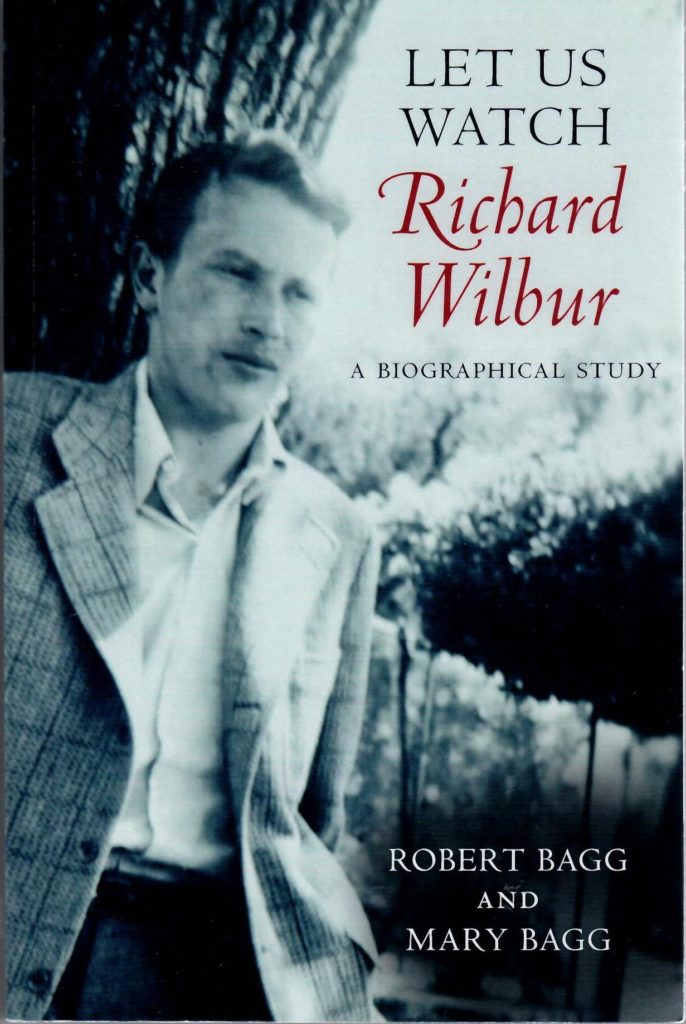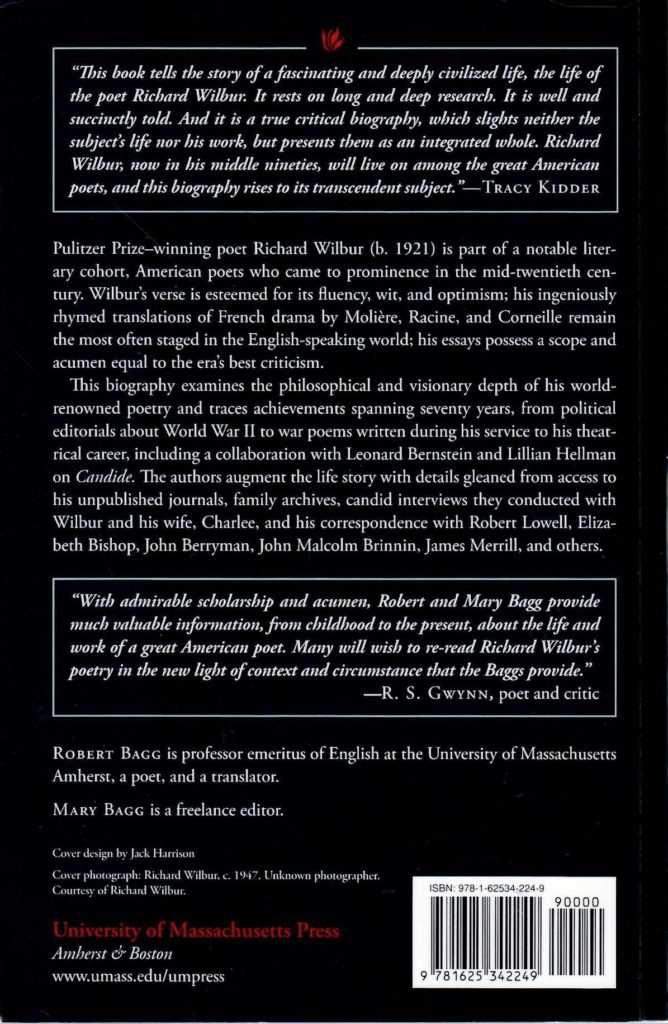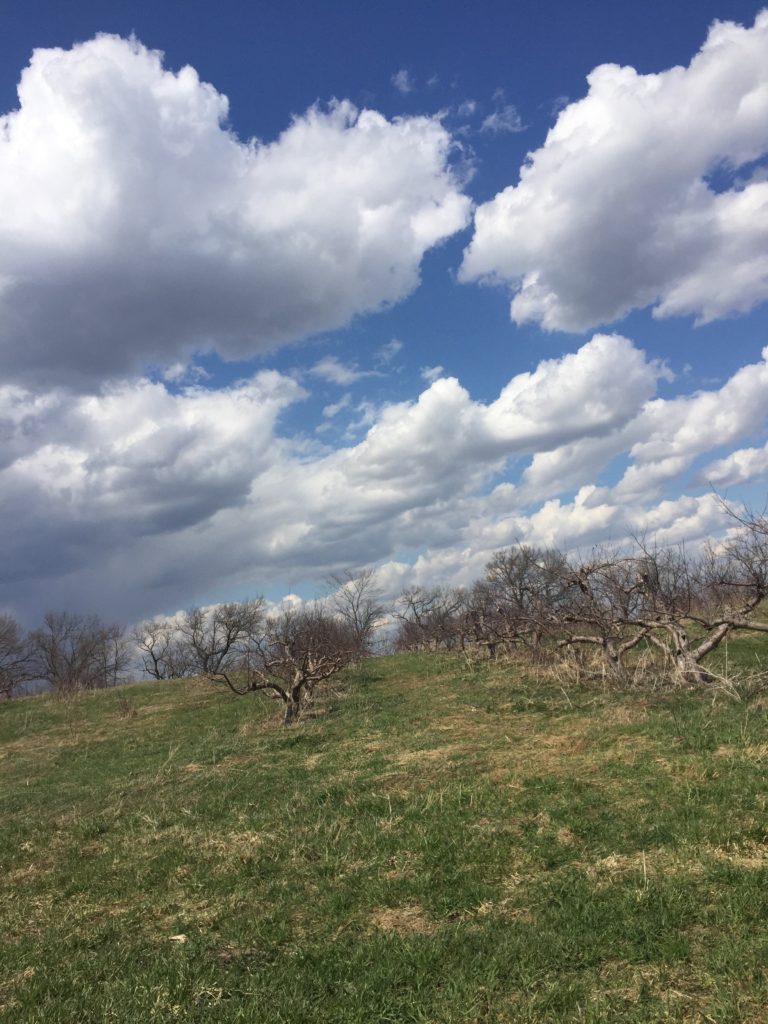

My admiration for the poetry of Richard Wilbur is longstanding and just about unbounded. I don’t rank the poets whose work I love, I just wonder at and cherish them. For me, the fact that I can and do make the same statement about several dozen poets’ work, at least, whose lives spanned centuries of poetic currents in the English language, doesn’t diminish the regard I feel. And what I appreciate about today’s Spotlight book is that it helped me understand the kind of person Wilbur was, and, as it happens, he was just the kind of sane, decent, vastly talented, and very human in his foibles as I imagined him to be.
Robert and Mary Bagg‘s accomplishment in the literary biography, Let Us Watch Richard Wilbur (University of Massachusetts Press, 2017) is remarkable for its sensitivity, range, and timeliness, appearing as it did the same year of Wilbur’s death. It is a rare thing for a biographer (or, in this case, a team of biographers) to have a cooperative subject whose trust, the result of years of collegial friendship and mutual regard, provided access to interviews and documents (including unpublished journals; private correspondence with many people, including some of the giants of twentieth century literature such as Bishop, Lowell, Berryman and Merrill; family archives; and a series of interviews with Wilbur, and with his wife, Charlee (1922 to 2007), to whose memory the biography is dedicated.)
Richard Wilbur (1921 to 2017) published his first in a string of distinguished collections of poetry (as well as essays and translations) in 1947. When poet and critic Louise Bogan reviewed that debut volume, The Beautiful Changes, for The New Yorker Magazine, she concluded, “Let us watch Richard Wilbur. He is composed of valid ingredients.”
Indeed. Wilbur’s accolades are numerous, lofty, and deserved. (Two Pulitzer Prizes, a term as Poet Laureate of the United States, and too many prizes and publications to count for his own poetry and prose, as well as distinguished teaching and incredibly accomplished translations of French writers, especially successfully with Moliere’s plays.) What most impresses me is his formal skill, deep humanity, and sense of order and humor. Such poems as “A Hole in the Floor”, “Love Calls Us to the Things of This World”, “Junk”, “Cottage Street, 1953”, and “Advice to a Prophet”, among many, many others, along with his translation of “Tartuffe” make him a perennial teacher of mine, even though I never met him. His restraint, artistry, extensive learning worn gracefully and lightly, and his sense of humanity make his poems always current favorites with me.
Context for Poem “Elegances”:
The poem today is an homage to Richard Wilbur, a writer whose verse is as elegant and muscular as any I have encountered.

Until tomorrow,
LESLIE
